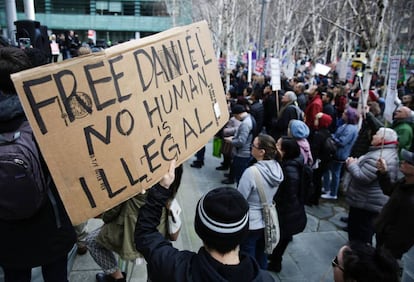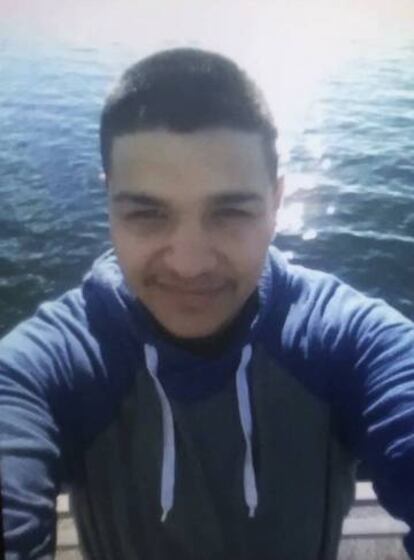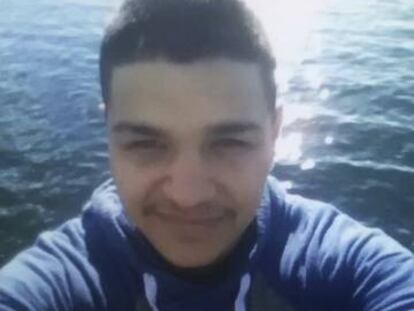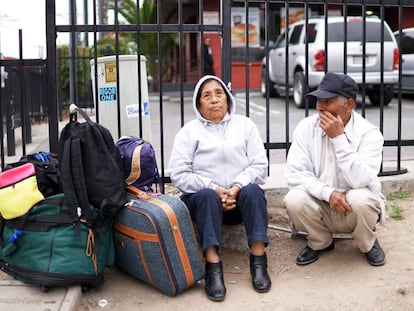US judge declines to release “dreamer” despite federal protection
Daniel Ramírez’s lawyers say his statement was tampered with to make him look like gang member

The anguish felt by hundreds of thousands of illegal migrants in the United States will last at least another week. On Friday, a federal judge in Seattle refused to release Daniel Ramírez Medina, who was detained by immigration officers a week earlier despite having a work permit and no criminal record.

Ramírez Medina is a recipient of the Deferred Action for Childhood Arrivals (DACA) program, which Obama created in 2012 to allow people who were brought into the US illegally as children to study and work, provided certain requirements are met. These beneficiaries are often referred to as “dreamers.”
Despite meeting the requirements, the 23-year-old now faces deportation, raising questions about the fate of other people in federal protection programs under the new Trump administration, which has promised to crack down on illegal immigration.
On Friday, after lawyers for Ramírez went to federal court to demand his immediate release, Magistrate Judge James P. Donohue instead referred the case to a immigration court, where a bond hearing will take place within a week.
Ramírez was arrested on February 10 during a raid in which his own father was being targeted
In the meantime, Donohue has also asked the parties for further information to decide whether his court has jurisdiction to consider the case.
This is the first known instance of a “dreamer” being arrested just like any other undocumented migrant. The outcome of the case could have far-reaching repercussions for around 750,000 people who have enjoyed DACA protection since 2012.
These individuals were brought to the US as children, and many of them have no memories outside the country. Thanks to DACA, a program that does not grant them legal status but makes them immune to deportation as long as they do not commit any crimes, recipients are able to study, work and lead normal lives without fear of the police.
According to briefs filed by his lawyers, Ramírez arrived in the US in 2001, at the age of seven. He was granted DACA protection in 2014, and his status was renewed in 2016. He now has a three-year-old son of his own.

The defense claims that the federal judge should release Ramírez because there was no basis for his arrest, and that whether he can or cannot be deported should not even be under consideration. The mere fact that an immigration court is going to be involved is in itself a legal blow to the DACA program, which is now being challenged.
The Justice Department, on the other hand, insists that deportation proceedings must begin, just like with any other illegal immigrant.
During the campaign, Donald Trump promised to throw out undocumented migrants, who number an estimated 11 million people. But on several occasions he has suggested that he would focus on those with criminal records.
Recently, the White House and the Republican Party seemed to suggest that DACA recipients had nothing to fear. These individuals are particularly concerned, because in order to apply for membership they were forced to hand over a wealth of personal information, and cannot hide from the police.
In an improvised press conference on Thursday, Trump said that “we're going to show great heart” with DACA.
“DACA a very difficult subject for me. To me, it's one of the most difficult subjects. You have incredible kids, in many cases, not all cases. In some of the cases, they are gang members and drug dealers, too,” he said in response to a question.
Gang affiliation
Ramírez was arrested on February 10 during a raid in which his own father was being targeted. He was reportedly asked if he was a US citizen, and he replied that he had a work permit. Immigration officers arrested him on the spot, according to his lawyers.
The defense department has since claimed that Ramírez admitted gang affiliation, one of the causes to rescind DACA protection. But his lawyers say this is a deliberate smear campaign to justify the arrest, and have even accused authorities of tampering with their client’s statement to detention officials, in which a few words in the opening sentence have been erased.
According to his lawyers, Ramírez’s statement originally read: “I came in and the officers said I have gang affiliation ... so I wear an orange uniform. I do not have a criminal history and I do not have gang affiliation.” But the first seven words have been erased, so that the note begins halfway down the line with “I have gang affiliation.”
His lawyers also note that the Department of Homeland Security has a large database of gang member suspects, and that these lists are consulted before granting DACA protection to applicants.
English version by Susana Urra.
Tu suscripción se está usando en otro dispositivo
¿Quieres añadir otro usuario a tu suscripción?
Si continúas leyendo en este dispositivo, no se podrá leer en el otro.
FlechaTu suscripción se está usando en otro dispositivo y solo puedes acceder a EL PAÍS desde un dispositivo a la vez.
Si quieres compartir tu cuenta, cambia tu suscripción a la modalidad Premium, así podrás añadir otro usuario. Cada uno accederá con su propia cuenta de email, lo que os permitirá personalizar vuestra experiencia en EL PAÍS.
En el caso de no saber quién está usando tu cuenta, te recomendamos cambiar tu contraseña aquí.
Si decides continuar compartiendo tu cuenta, este mensaje se mostrará en tu dispositivo y en el de la otra persona que está usando tu cuenta de forma indefinida, afectando a tu experiencia de lectura. Puedes consultar aquí los términos y condiciones de la suscripción digital.










































